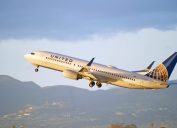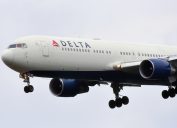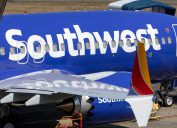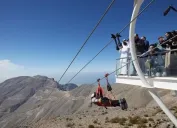United CEO Warns of More Flight Delays for All Airlines
He says "the customers are paying the price" for the industry's current condition.
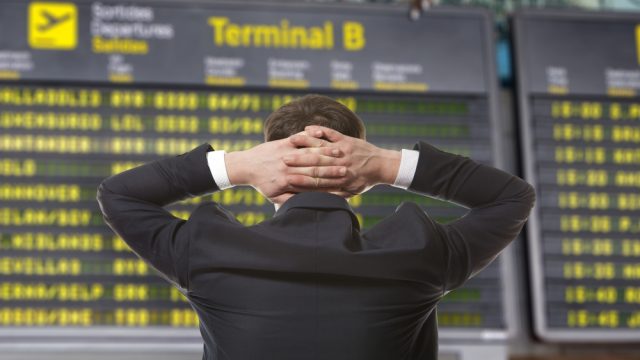
No matter how well prepared of a traveler you might be, we are all at the mercy of the airlines when it comes to getting where we're going on time. But recent events have shown that severe weather can ground planes just as easily as technical glitches. Even in cases where system-wide problems aren't at fault, major carriers can still struggle to stick to their schedules often enough for it to become a point of concern for frequent flyers. Now, the CEO of United Airlines is warning that there will likely be more flight delays to come that will affect all carriers. Read on to see why he's concerned about the near future of the industry.
READ THIS NEXT: Southwest Is Finally Changing the Way It Boards Flights.
The CEO of United Airlines warned that travelers on all airlines could face delays due to unresolved issues.
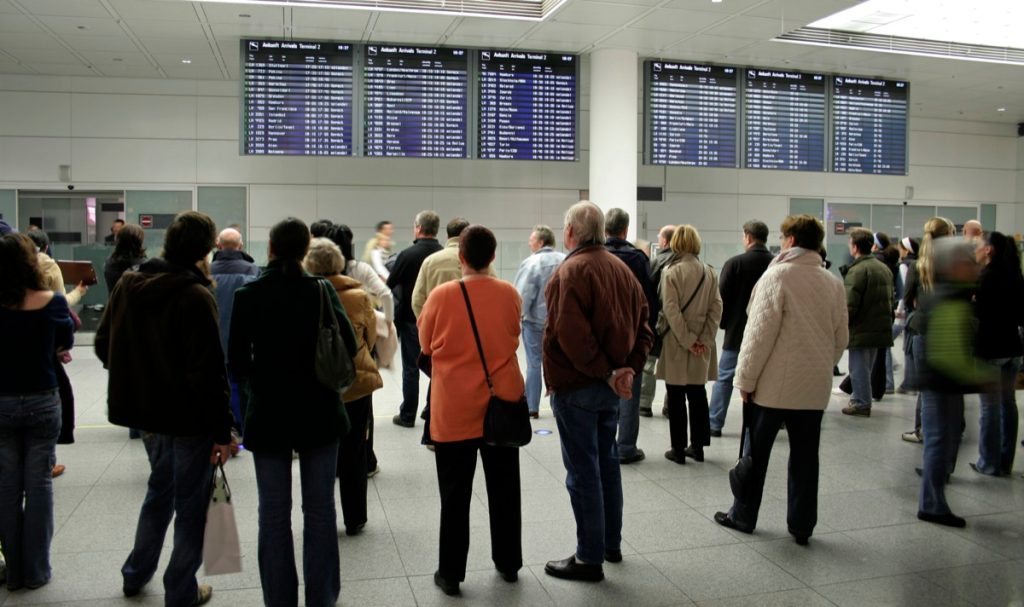
The airline industry has largely tried to remain optimistic as it continues its recovery and ramps operations back up after the COVID-19 pandemic. But during an earnings call on Jan. 18, United Airlines CEO Scott Kirby took an opportunity to warn passengers that lingering issues haven't been significantly addressed to avoid large-scale disruptions that could affect travelers on any carrier, the Associated Press reports.
The executive said that besides the ongoing pilot shortage faced by companies, airlines were slow to make the proper preparations for their return to full operations. They're now suffering from a shortfall of updated technology alongside insufficient staffing at the Federal Aviation Administration (FAA), which regulates air traffic.
"The system simply can't handle the volume today, much less the anticipated growth," Kirby said during the call. "There are a number of airlines who cannot fly their schedules. The customers are paying the price."
Kirby cited the recent travel meltdown over the holidays as a prime example.
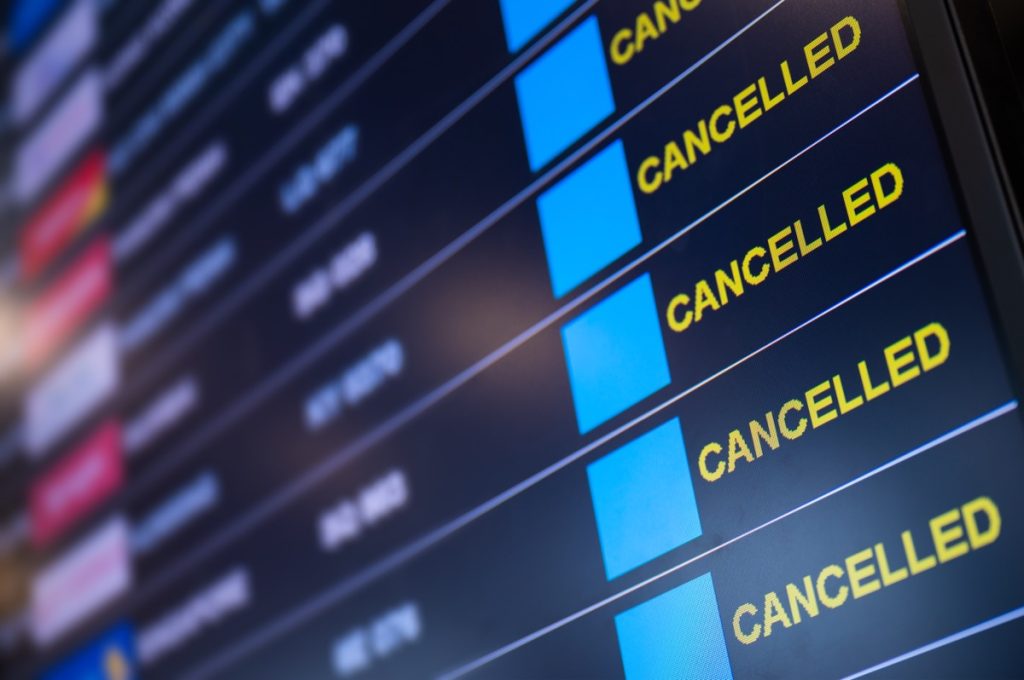
Certain recent events may serve to prove Kirby's point. Although he did not mention the carrier by name, he alluded to Southwest Airlines' infamous meltdown over the busy holiday travel season. The major snafu saw nearly 17,000 flights canceled after the carrier's outdated employee scheduling system broke down as the airline was rebounding from a historic winter storm, Insider reports.
However, he also pointed out that there were more system-wide problems than many might have noticed. "What happened over the holidays wasn't a one-time event caused by the weather, and it wasn't just at one airline," Kirby said. "One airline got the bulk of the media coverage, but the weather was the straw that broke the camel's back for several."
"We believe any airline that tries to run at the same staffing levels that it had pre-pandemic is bound to fail and likely to tip over to meltdown anytime there are weather or air traffic control stresses in the system," he added.
RELATED: For more up-to-date information, sign up for our daily newsletter.
Airlines will need to bulk up staffing to higher levels than before the pandemic.
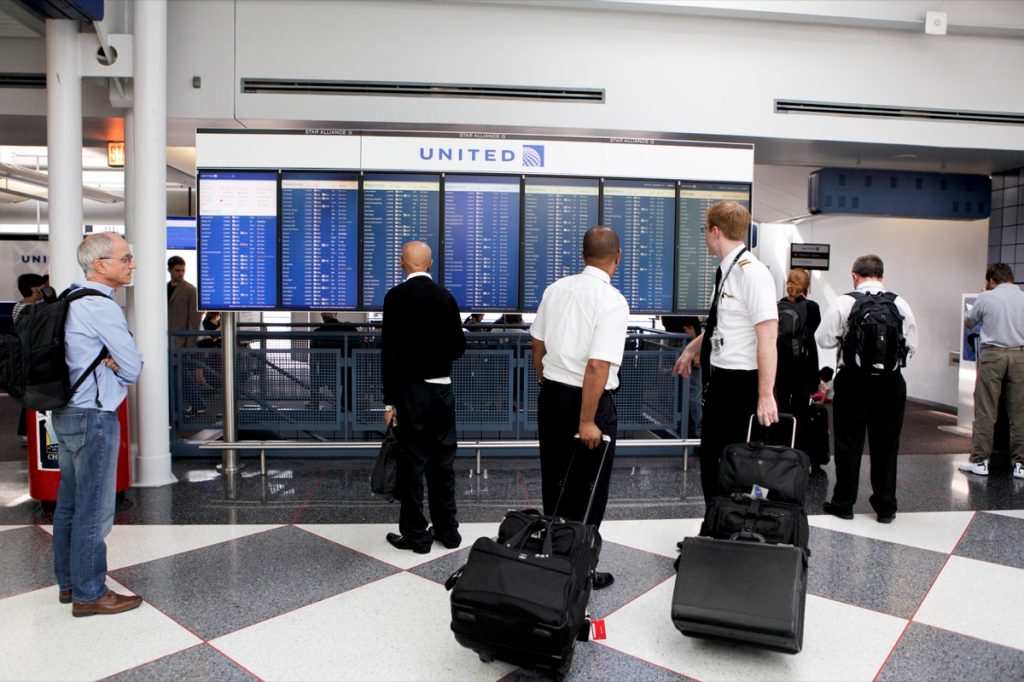
However, Kirby did say that United had already begun pushing itself toward operating efficiently and without disruptions. He explained that rather than simply replacing employees who resigned during the pandemic, carriers would likely need 10 percent more pilots and five percent more aircrafts if they hope to generate the same revenues they did in 2019, Skift reports.
"Like it or not, that's just the new reality and the new math for all airlines," he said on the call. "I think, however, we may be the only airline that's actually figured this out."
The CEO explained that the airline had adequately invested in itself when it mattered most. Besides maintaining a decent amount of spare aircraft, it's also operating with staffing buffers that can help offset any potential delays or issues. "All of those obviously cost money, but it's clearly the right thing to do for our customers and among the most important things we can do to win their loyalty," Kirby said.
United was able to make necessary changes because it intentionally flew less last year.
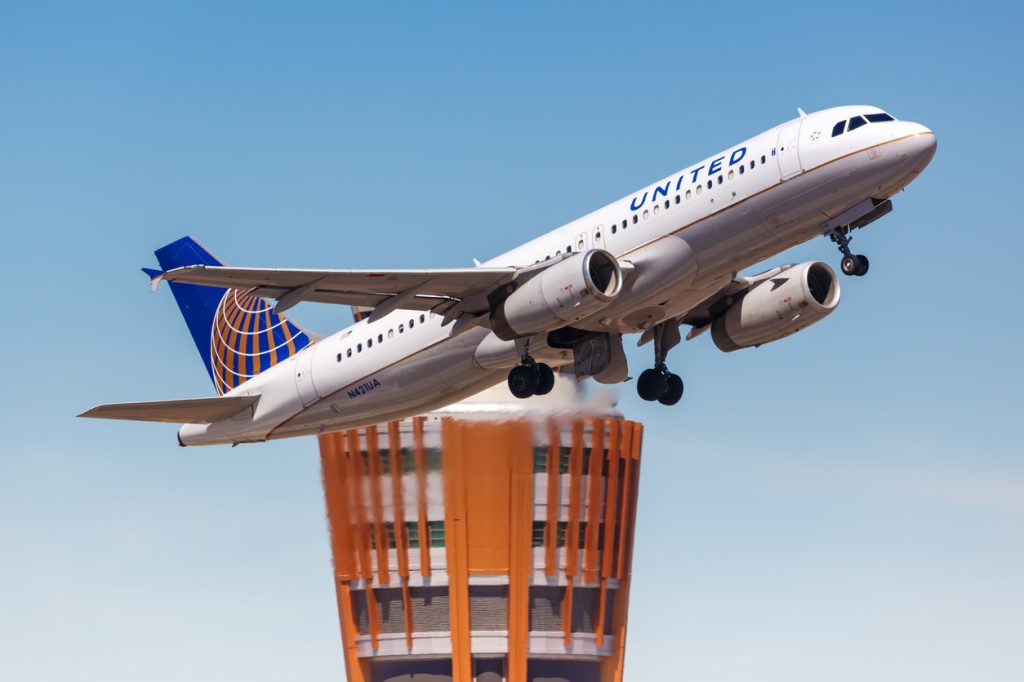
But while Kirby remained optimistic about the airline's ability to handle challenges and stay on schedule, he was also honest that some of the decisions came at a cost to the airline—including missing their projected passenger numbers for 2022. Still, he said that the airline had responded to the spread of the highly contagious Omicron subvariant during the 2021 holiday season by "proactively pulling down capacity," saying it was "the only choice."
"We flew a lot less last year than we'd have liked to fly, but we did it intentionally, because it gave us the breathing room to make even further investments in our technology and infrastructure and to increase our staffing levels. And we had a huge head-start compared to most airlines because we started with much better technology and infrastructure," he explained.
Despite the airline's difficult decisions, it's still managing to fly above its bottom line: The airline said it made a net profit of $843 million during its fourth quarter, showing an increase of 14 percent compared to 2019, Skift reports. Those numbers brought the carrier's operating profit to $2.3 billion for the entire year, despite flying at 14 percent less capacity.
